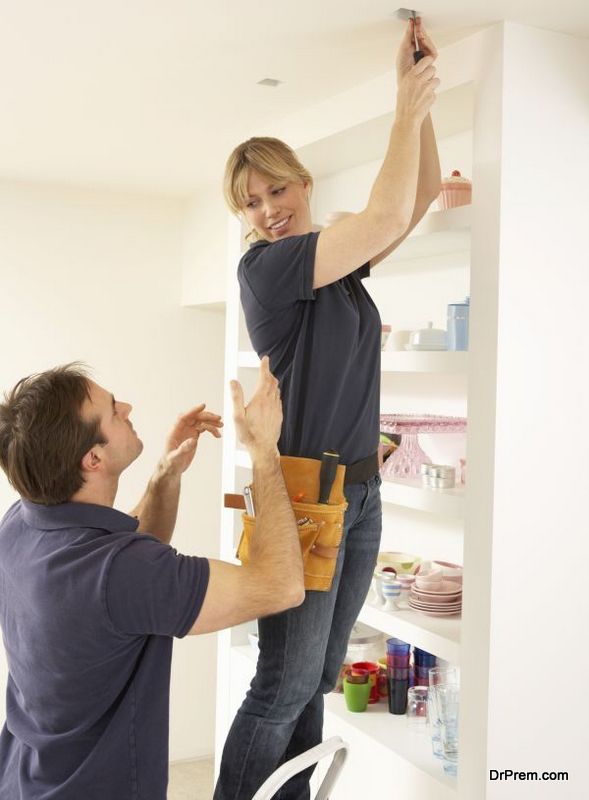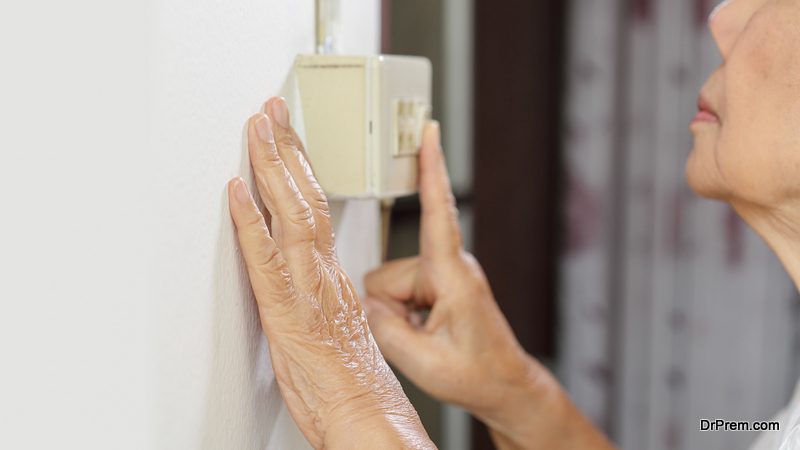Knowing the signs of electrical faults in your home could avert disaster – acting on the warning signs when they first appear is integral before an electrical problem turns into an emergency.
Make sure you know that your home’s electrical circuits are functioning as they should by being alert to evidence of faults. Electrical problems can cause fires and shocks, so be sure to act at the first sign that things aren’t working as they should.
1. You don’t have enough outlets
 While this isn’t an outright danger, using too many extension cords can jeopardize your home’s internal wiring. If cords become faulty or you overload your house with them, there’s a higher chance of causing electrical hazards. If you consistently find that you need more outlets, get an electrician to install more rather than rely on extension cords. Cords are fine if only used temporarily, for example during the holidays or when you have people visiting.
While this isn’t an outright danger, using too many extension cords can jeopardize your home’s internal wiring. If cords become faulty or you overload your house with them, there’s a higher chance of causing electrical hazards. If you consistently find that you need more outlets, get an electrician to install more rather than rely on extension cords. Cords are fine if only used temporarily, for example during the holidays or when you have people visiting.
2. Outlets sparking
Rare small sparks from outlets are actually normal, but if this happens regularly, it’s a sure sign that there is a dangerous problem. To be safe, always get a sparking outlet checked by an electrician to ensure it presents no fire hazard. If an appliance or fuse box is sparking, get these checked and repaired immediately.
3. Regularly blown fuses
If an outlet repeatedly blows a fuse no matter what is plugged into it, it needs urgent attention from an electrician. Obviously, don’t plug anything into it until it has been assessed and repaired. This may mean that the circuit needs upgrading, or an additional electrical line needs to be installed. If it is a certain appliance or device that blows its fuse, it will be the appliance rather than the outlet that is the problem.
4. Unusual buzzing noises
Electricity working normally should be silent. Faults in the wiring of your house can cause strange buzzing sounds from outlets or inside your walls. This could mean that there are frayed wires, connections have come loose, or your outlets are otherwise broken – call an electrician to investigate ASAP.
5. Hot outlets
If an outlet is producing heat, stop using it and get an expert round to fix it. Even if the appliance you’re plugging into it is meant to produce heat, the outlet itself should never be hot. This is a dangerous fire hazard, so spare no time in getting it checked out.
6. Hot light fixtures

Similarly, if your ceiling or wall light fixtures are hot around their attachments, this is a sign that something is wrong, and it could pose a fire risk. Overheated fixtures could be down to a number of causes, which can be determined by a professional.
7. Flickering lights
Light fixtures don’t draw much electricity, so if they dim or flicker, it’s rarely a problem with the light itself. The issue is probably down to overloading the circuit – for instance, having large energy-draining appliances plugged into the same circuit, like space heaters or refrigerators. Appliances that are used to change temperatures usually use the most electricity, so you could find this problem in the kitchen more than other places. To solve this, inquire with an electrician about switching your lights to a different circuit.
8. Light switches and outlets not working
Electrical outlets and fixtures that suddenly stop working, or only work intermittently, are a sign that something is amiss. The wiring may have come loose or have some kind of internal broken connection. These can end up causing shocks or sparks, so have them assessed as soon as these problems arise.
9. There is a burning smell
If you notice a burnt smell that isn’t attributed to cooking, or a melted plastic odor, avoid using electricals and call an emergency electrician to your property to investigate. It could just be a faulty device, but this can also signal an internal wiring issue.
Article Submitted By Community Writer




